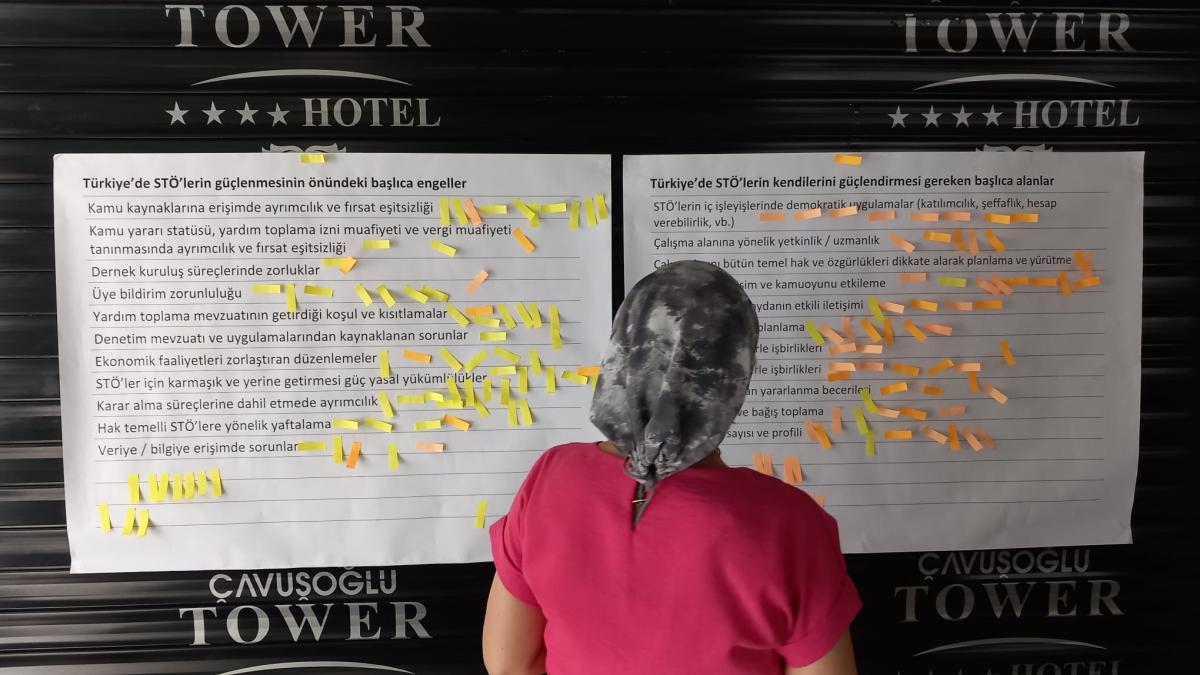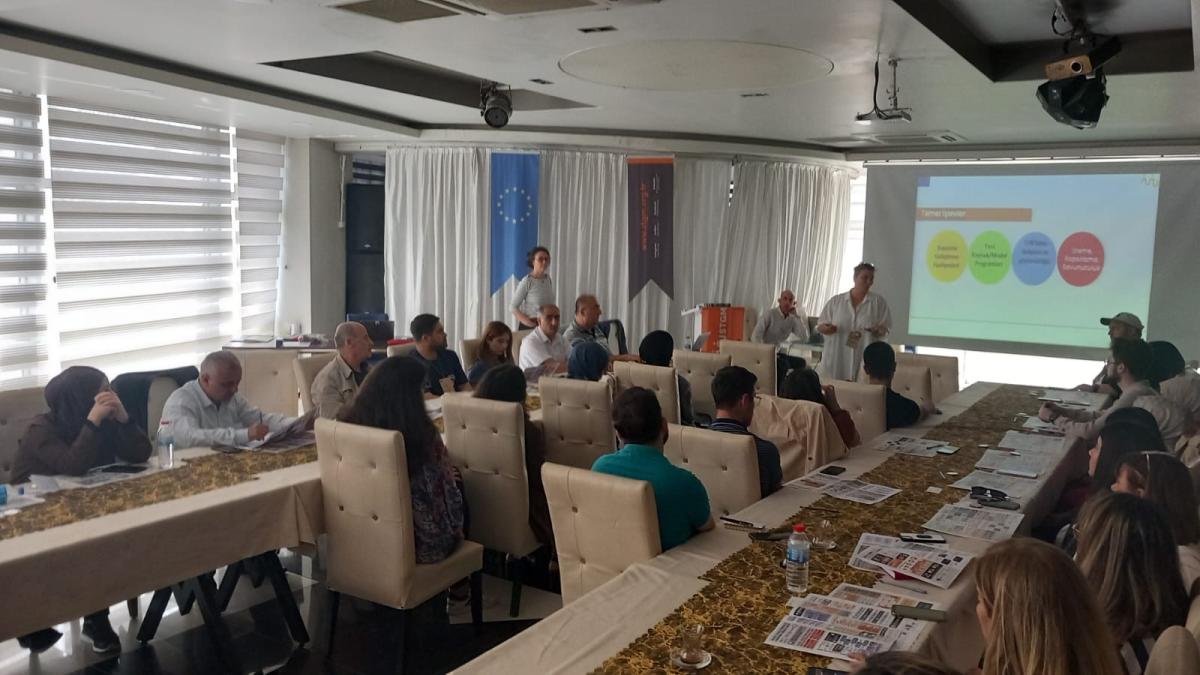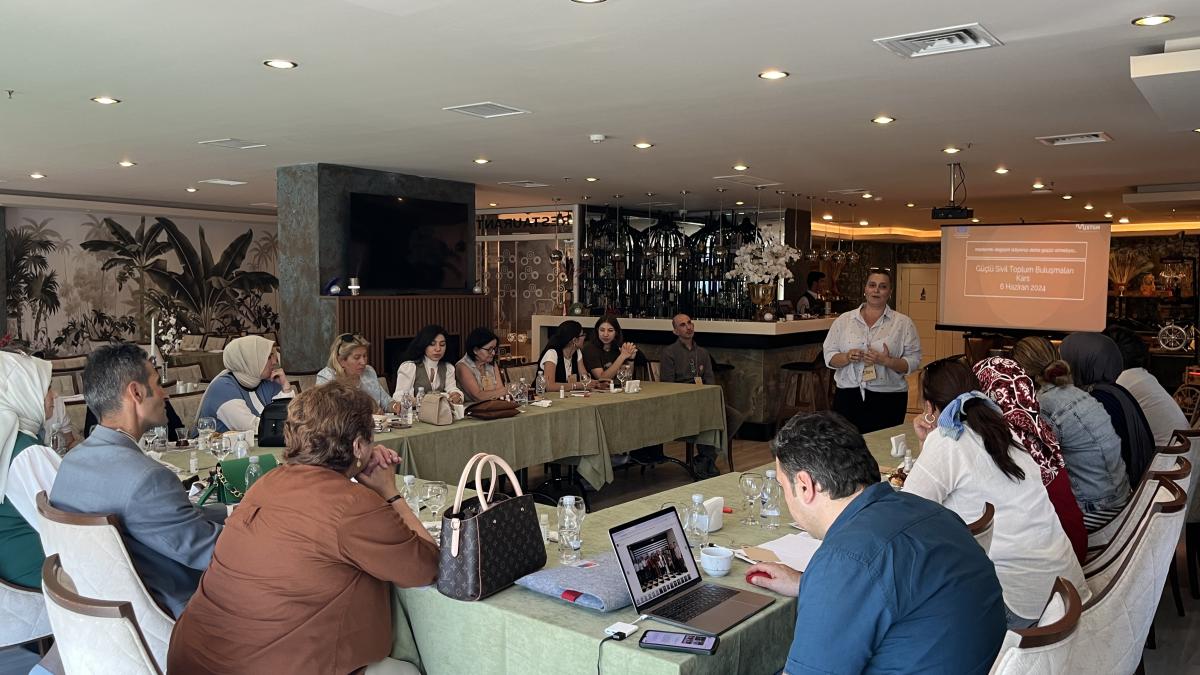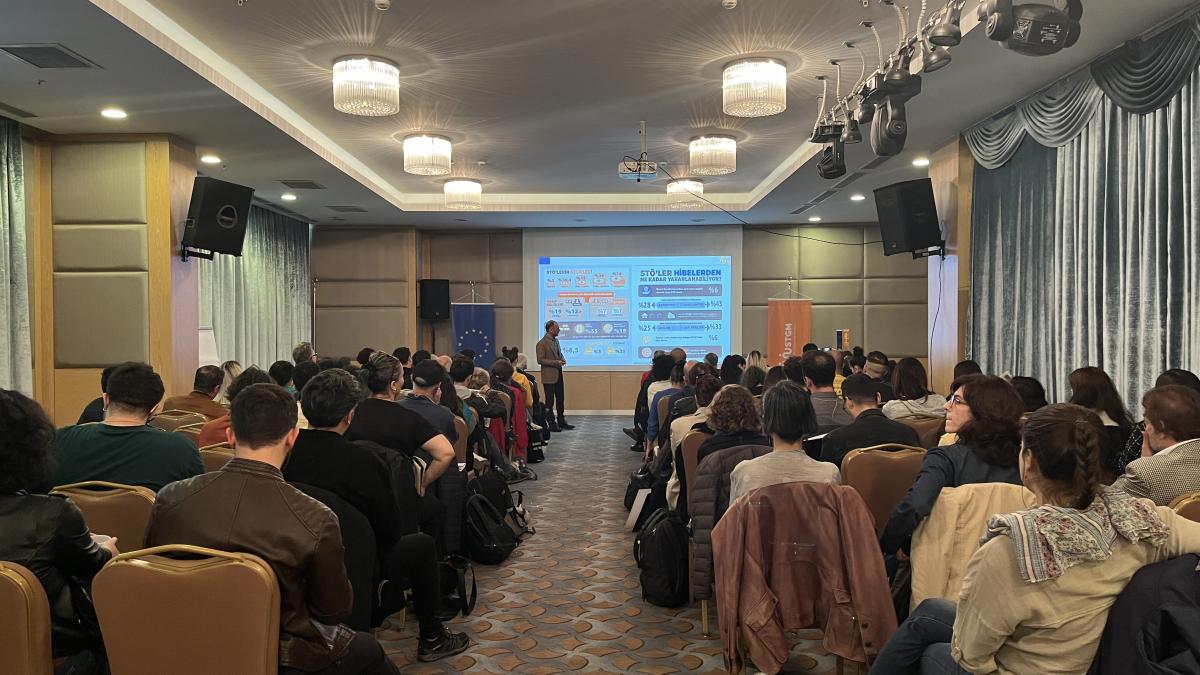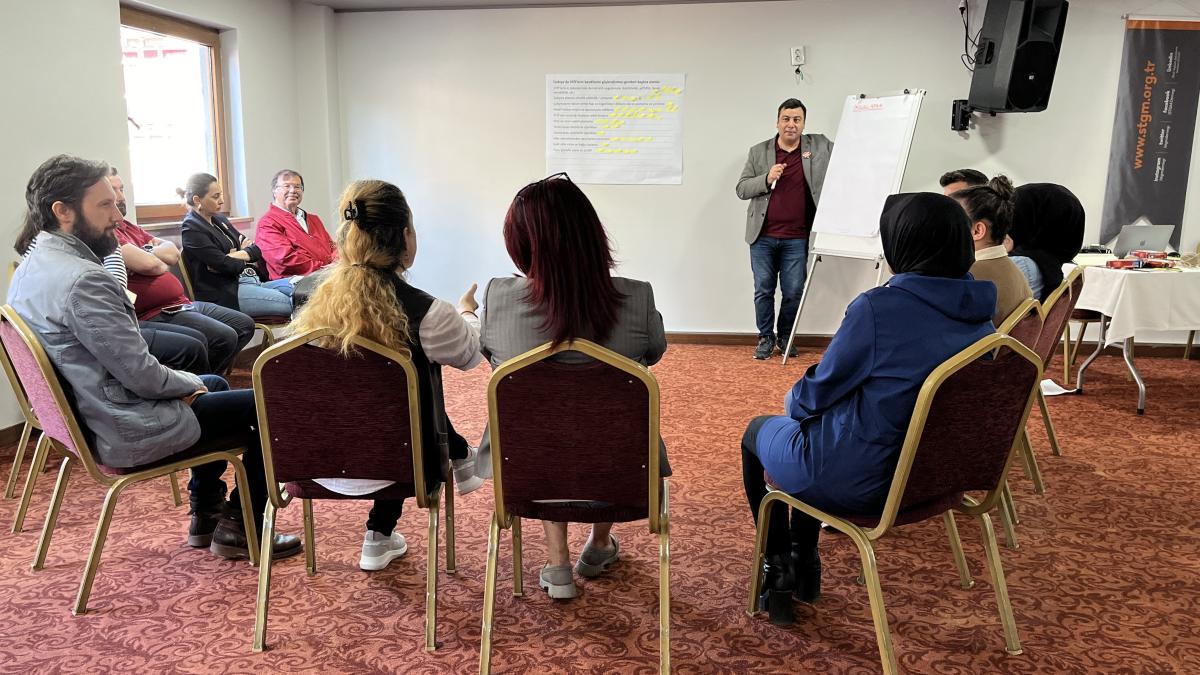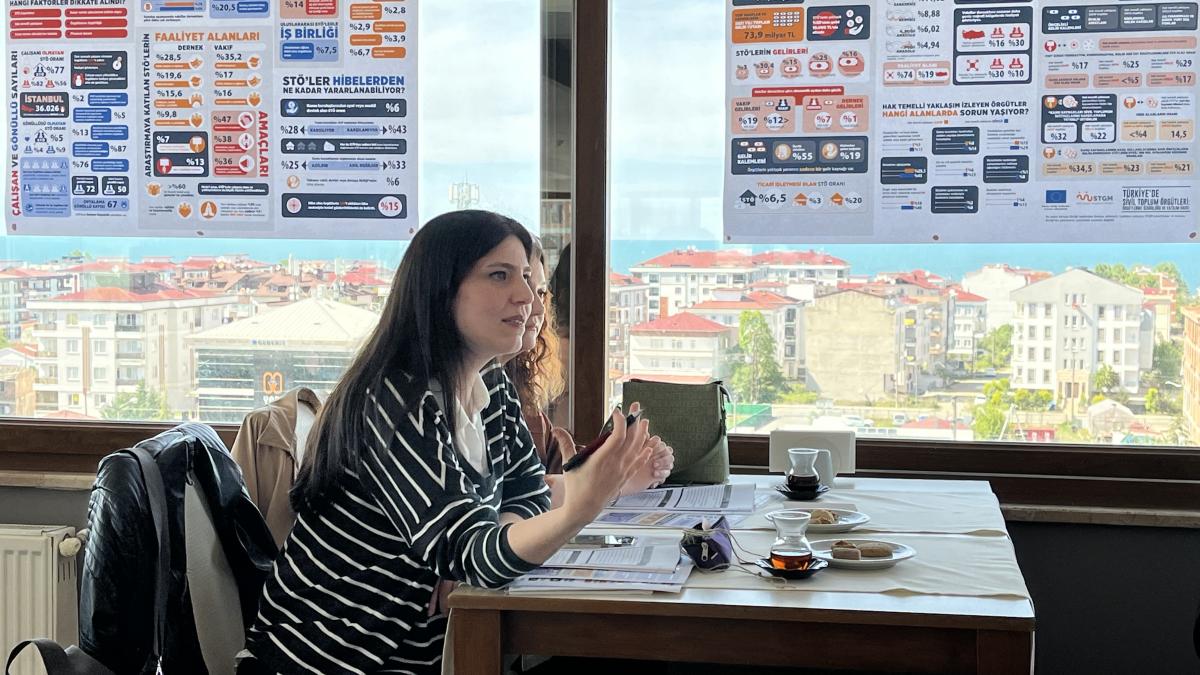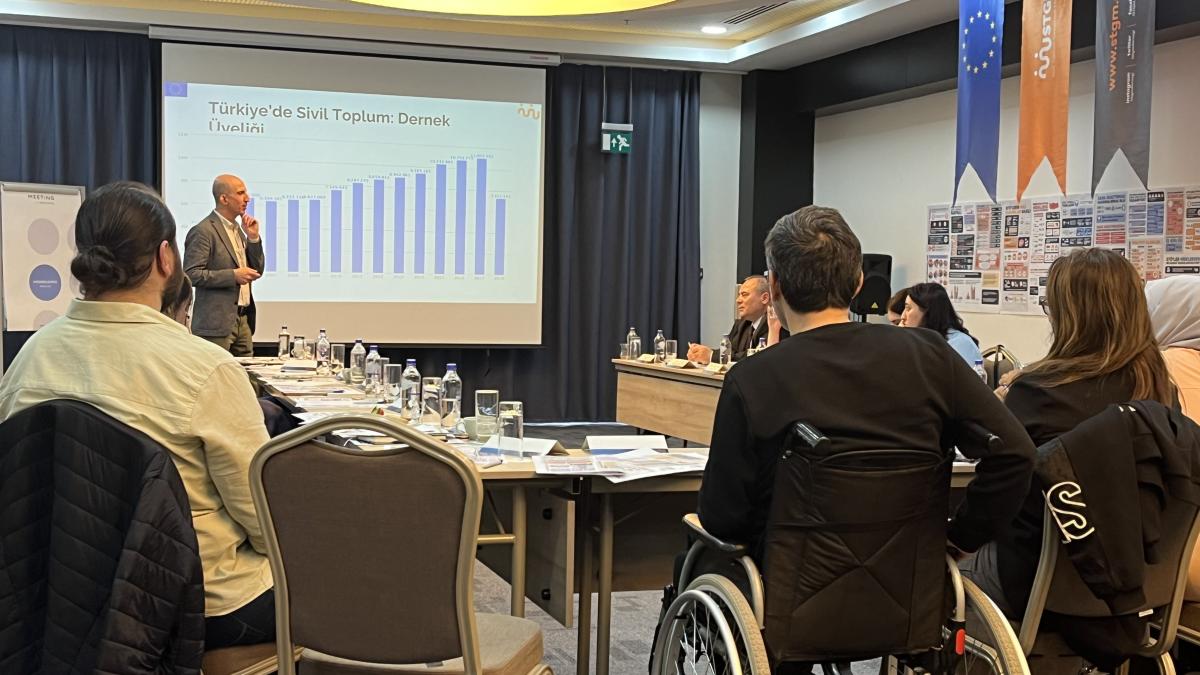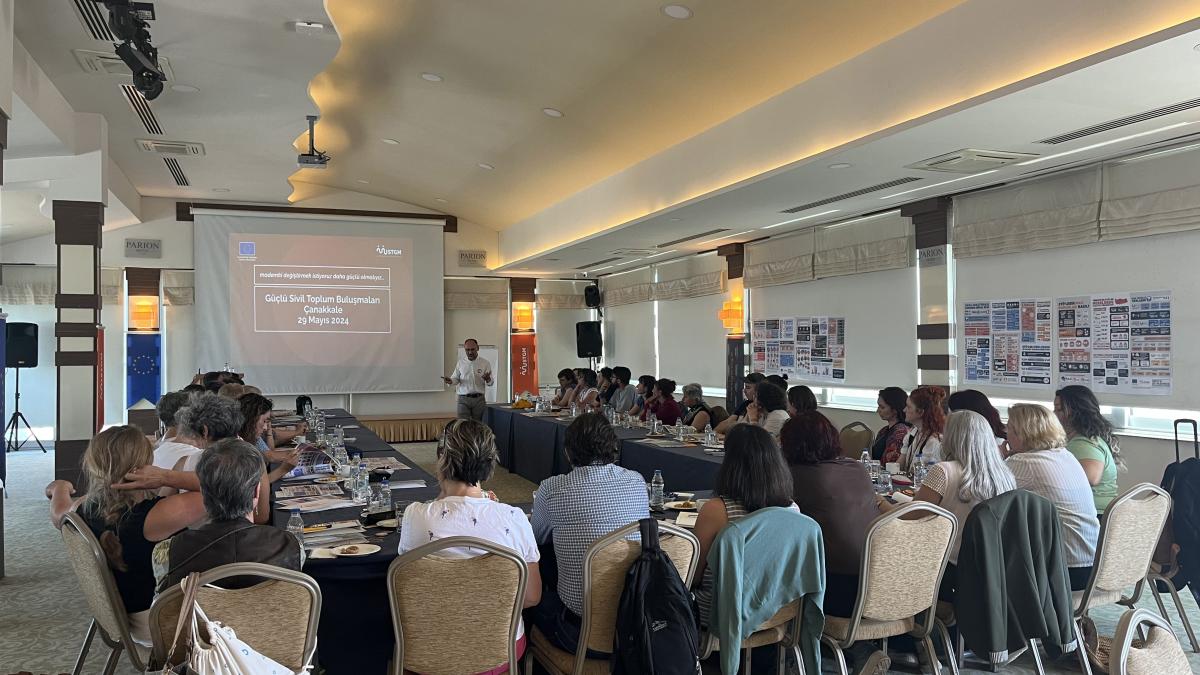
At the meetings, where we met with more than 800 representatives of civil society organisations in 31 cities, we discussed both the obstacles that civil society faces and our proposals to overcome them. While the meetings emphasised unity and solidarity, it was noted that transparent and accountable structures should be in place to strengthen the public perception of civil society organisations.
Resources are limited, obstacles are numerous
Participants at the meetings often stated that their organisations are in a difficult financial situation and that they face difficulties due to limited resources. It was also said that access to grants and funding was difficult and that this situation had a negative impact on the sustainability of the organisations. The organisations that stated that public funding was not transparent reported that some organisations were prevented from accessing funds.
It was noted in the interviews that the complexity of the laws regulating civil society causes problems and that simplifying the laws would facilitate the organisations' activities.
CSOs have difficulty engaging with young people
While the organisations stated that they have problems reaching out to young people and volunteers, it was stated that young people should be motivated to participate more in civil society activities.
What was said, what was suggested?
A number of obstacles to the strengthening of civil society organisations in Turkey were revealed at the meetings and the main issues were as follows
Discrimination and inequality of opportunity in access to public resources were frequently mentioned. It was emphasised that policy changes and more transparent administrative practises were needed to strengthen cooperation with the public and enable fair and equal access to resources.
It was noted that regulations in legislation that make economic activities difficult restrict the economic activities of CSOs. It was suggested that co-operation with the public should be strengthened to support the economic activities of CSOs.
It was noted that civil society is also discriminated against when participating in decision-making processes and that this situation is detrimental to democratic processes. It was reported that the ability of CSOs to effectively advocate for their interests is weakened when their access to the right to participation is restricted and that CSOs need to strengthen their advocacy capacity to be more involved in decision-making processes.
The labelling of rights-based CSOs was also mentioned as a significant barrier. It was observed that this obstacle harms the legitimacy of CSOs in the eyes of society in cities such as Ankara, Diyarbakır and İstanbul.
Where did we travel to?
On our long journey, where we thought about how to strengthen the role of civil society organisations in the regulation of civic space, we visited Adana, Ankara, Balıkesir, Bolu, Bursa, Çanakkale, Çorum, Denizli, Diyarbakır, Edirne, Erzincan, Erzurum, Eskişehir, Gaziantep, İstanbul, İzmir, Kars, Kastamonu, Kayseri, Konya, Mardin, Ordu, Samsun, Şanlıurfa, Sivas, Tokat, Trabzon, Tunceli, Uşak, Van and Zonguldak.


